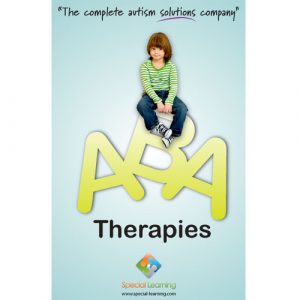Difference Between A General and A Developmental-Behavioral Pediatrician
Why does my child need to see a developmental pediatrician? Can’t my child’s general pediatrician diagnose and treat Autism? These are probably some questions that float around parents’ minds once their child’s pediatrician recommends that the child sees a developmental pediatrician during one of their regular well-baby visits.
Credentials
How are general pediatricians different from Developmental-Behavioral Pediatricians? Both go through years of medical school. They start by taking the MCAT or Medical College Admission Test. Passing this test means acceptance to medical school.
In the United States, medical school involves 4 years of study and one year of internship. It is during the internship year that medical students get to decide which subspecialty they want to focus on. Those who do not acquire a subspecialty go on to what we know as general pediatricians, while those who choose to take on developmental-behavioral pediatrics must spend obtain 3 years of residency in pediatrics to further hone their knowledge and master the skills necessary to diagnose and treat cases concerning developmental delays and behavioral difficulties (AAP, 2011).
Scope of Responsibilities
A general pediatrician is responsible for the overall care and health of children. They compare the child’s physical, mental, social, and behavioral characteristics to the norm and are also responsible for identifying red flags or what is commonly referred to as developmental delays or atypical characteristics or actions.
A developmental-behavioral pediatrician is a subspecialist within the practice of pediatric medicine. This subspecialty remains interdisciplinary integrating Psychology, Pediatrics, and related disciplines (Carey, Crocker, 2009).
Developmental-behavioral pediatricians specialize in the diagnosis, treatment, and management of children, adolescents, and their families with developmental and behavioral conditions. Examples of these conditions are the following (AAP, 2011):
- Learning disorders including dyslexia, writing difficulties, math disorders, and other school-related learning problems;
- Disorders that deal with behavior and attention spans include Attention-Deficit Hyperactivity Disorder (ADHD) and associated conditions including oppositional-defiant behavior, conduct problems, depression, and anxiety disorders;
- Habit disorders such as Tourette’s Syndrome;
- Regulatory disorders including sleep disorders, problems in feeding, discipline difficulties, complicated toilet-training issues, enuresis (bedwetting), and encopresis (soiling);
- Developmental disabilities such as cerebral palsy, spina bifida, mental retardation, Autism Spectrum Disorders (ASD), and visual and hearing impairments;
- Developmental delays in speech, language, motor skills, and cognitive ability.
Recommendations of general pediatricians who do possess certification in Developmental-Behavioral Pediatrics but are nevertheless vastly knowledgeable in dealing with Autism Spectrum Disorders are still valid. However, in more complex cases that necessitate the expertise of professionals aptly trained in the diagnosis and treatment of such conditions, Developmental-Behavioral Pediatricians are called in.
References:
American Academy of Pediatrics. Aap.org. Family Life: What is a Developmental-Behavioral Pediatrician? Retrieved July 16, 2011, from http://www.healthychildren.org/English/family-life/health-management/pediatric- specialists/pages/W
Carey, W.B. and Crocker, A.C. (2009). Developmental and Behavioral Pediatrics, Fourth Edition. Philadelphia: Saunders Elsevier
American Board of Pediatrics. Abp.org. Developmental-Behavioral Eligibility Criteria. Retrieved July 16, 2011, from https://www.abp.org/ABPWebStatic/#murl%3D%2FABPSearch%2FsearchResults%3FsearchTerm%
Copyright © by Special Learning Inc. All right reserved.
No part of this article may be reproduced in any manner whatsoever without written permission except in the case of brief quotations embodied in critical articles and reviews. For information, contact Special Learning Inc., at: contact@special-learning.com








